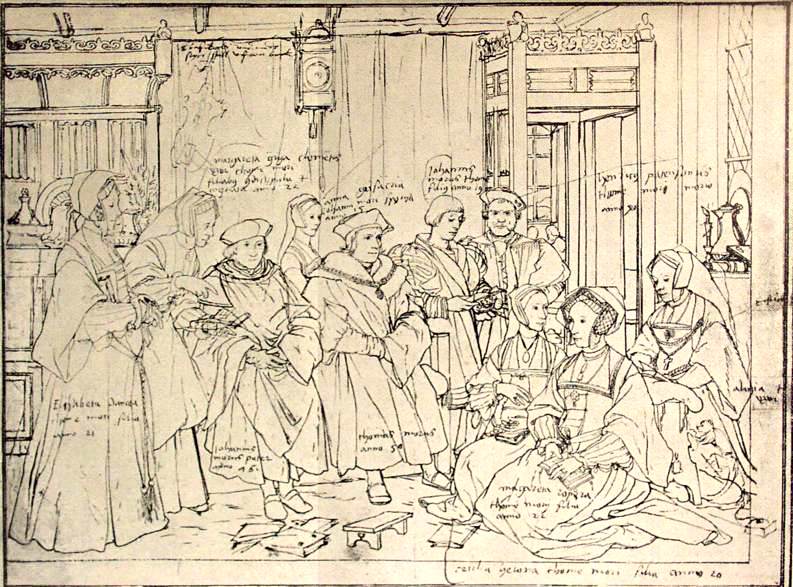The family of Sir Thomas More
Sir Thomas More was in many ways the model of the humanist ideal: a man of wide learning, wit and generosity, he made his way into the world of power through native ability rather than birth.
At the peak of More's career as chancellor succeeding Thomas Wolsey, his fall came as a result of his integrity--his refusal to sign the Act of Supremacy making Henry VIII head of the English church. He made sure that all in his family--including his daughter Margaret Roper and his adopted daughter Margaret Griggs--were fully educated. His son-in-law, William Roper wrote a delightful short biography of him.
Not a Utopia?
More is best remembered for his witty and original prose fantasy Utopia (the name, from the Greek, means "the place that is not," and the name of his main character, Hythloday, means "speaker of nonsense"). It is perhaps a sign of More's conservatism that he wrote the Utopia in Latin, at a time when humanists were leading the way in making English a language for literature. The book began as a jest, along the lines of his friend Erasmus's Praise of Folly; but More's own views are difficult to gather. Utopia explores the injustices of the time*, including the eviction of farmers for the raising of sheep, but More makes Hythloday the mouthpiece for these comments, and More the character comments ironically on them.
Ironically, one admirable policy in Utopia is religious tolerance for all*; though More's life was in many ways a model--he had been canonized by the Catholic church for his martyrdom--as Chancellor he supervised the persecution, prosecution, and execution of many protestants.
Footnotes
-
Injustices of the time . . .
. . . And of all times, since in Utopia all property is held in common, private wealth, and gold and precious stones, are thought ridiculous, and there is no war.
-
Tolerance for all?
All, that is, except those who do not believe in an immortal soul, since such people must therefore consider themselves the equivalent of beasts.
